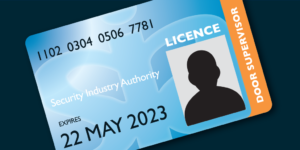Driving long hours can cause fatigue and that is a known fact. But the risk increases when the driver fails to realize it or denies it and continues to drive. That’s where things get severely wrong, as it is risking the lives everybody in and out of the car, including the one who is sitting behind the wheel. The result can be a life-threatening accident. So, it is always the need of the hour to recognize whenever a driver is fatigued, and the driving should be paused as soon as the symptoms start arriving.
There are even times when the driver dozes off without even realizing it, says an expert whom we met at the Kia dealer Spring dealership. He further added that, knowing this probability, the National Highway Traffic Safety Administration (NHTSA) released a guide on how to identify if a driver is tired and needs to stop driving immediately. There they have explained the causes as well as symptoms of drive-fatigue and shared the effective ways to prevent this driving hazard that is a direct threat to the several lives. We are briefing those symptoms and preventive methods in case you’ve not gone through their originally published guidelines.
Most Common Causes
Apparently, a driver feels sleepy after long hours of drive, as the act involves constant attention and alertness. Things get worse, if there is lack of quality rest before starting off for a long road drive, for the driver. Fatigue is common for every driver, but it is more prevalent among the commercial drivers, night-shift workers and individuals who are suffering from sleep disorders but are yet to be diagnosed. People who are on prescribed medication are also at greater risk.
Once fatigue starts settling in, a driver becomes less aware of his surrounding and his sense of judgment gets affected. That eventually results in quick decision-making inabilities and so the reaction time slows down. In such cases, it is commonly observed that the driver unknowingly lapses into short naps and that is enough to get trapped into a collision.
Sometimes highway driving for long hours becomes monotonous as the surrounding scenario do not seem to change for long intervals. Even fresh drivers can get fatigued after highway drives if driven without a break.
Symptoms of Drive Fatigue
If you experience any of these warning signs, know that you’re fatigued:
- Difficulty in focusing on the road.
- Repeated pangs of yawning, and difficulty in keeping your eyes open
- Feeling impatient.
- Getting irrelevant thoughts
- Brief lapses of memory
Preventive Methods
If you experience any of the above-said signs of fatigue, then take the following preventive methods.
- Immediately pull off the car on the side of the road, park it in a safe place and take a nap.
- If there’s no place for a car pulling nearby, keep the temperature of the car low, drive slowly and look for the next safe place to park your car.
- Keep a bottle of energy drink by your side and keep sipping on it, till you get the next break.
As rightly said by the Kia dealership Spring group of experts, by knowing the symptoms, and recognizing them, you have half solved the problem, the rest is on taking immediate actions to save your life.


Leave a Reply
You must be logged in to post a comment.